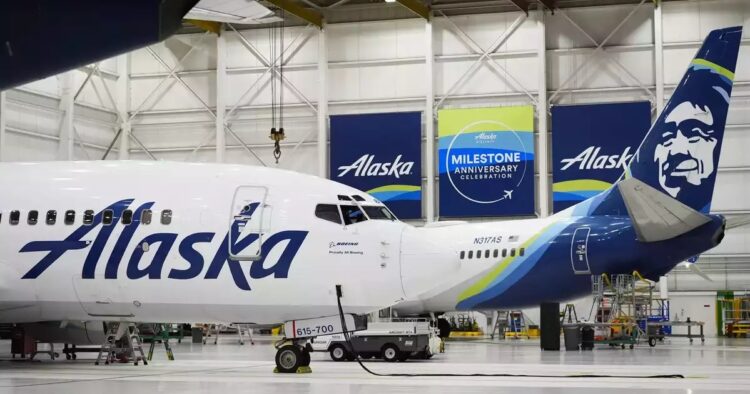Passengers aboard an Alaska Airlines Boeing 737 MAX 9, which experienced a mid-air emergency on January 5th, have been notified by the U.S. Federal Bureau of Investigation (FBI) that they may be considered victims of a crime. The FBI’s move signifies progress in its investigation into the incident, according to letters obtained by Reuters.
In these letters, dated Tuesday, the FBI informs passengers that they are potential victims of a crime and that the case is currently under investigation. However, due to the nature of criminal investigations, details about the progress cannot be disclosed at this time. The Seattle Times first reported on these letters.
Responding to queries, an FBI spokesperson in Seattle declined to comment, adhering to Justice Department policy of neither confirming nor denying ongoing investigations.
The Justice Department’s involvement in notifying potential victims stems from its revised guidelines in 2022, prompted by criticism from relatives of victims in previous Boeing 737 MAX 8 crashes. In those incidents, some families felt their legal rights were violated when the department reached a deferred prosecution agreement with Boeing in January 2021 without prior notification.
Acknowledging this criticism, the Justice Department apologized for not meeting with the families before announcing the agreement. The deal concluded a lengthy investigation into the design and development of the 737 MAX 8.
While Boeing declined to comment on the recent developments, it reiterated its commitment to full cooperation with government investigations. Alaska Airlines, similarly, expressed its cooperation with the investigation, affirming it does not believe itself to be the focus of the probe.
The mid-air emergency occurred when a door plug panel detached from the MAX 9 at 16,000 feet, creating a substantial hole in the aircraft. Despite this, the plane safely landed with no fatalities. However, seven passengers and one flight attendant sustained minor injuries during the incident.
An examination by the National Transportation Safety Board (NTSB) revealed that four crucial bolts were missing from the plane, which had been delivered by Boeing several months earlier. Boeing stated it believes the necessary documents detailing the removal of these bolts were never produced.
In response to the incident, the Federal Aviation Administration (FAA) temporarily grounded the MAX 9, prohibited Boeing from increasing MAX production rates, and mandated the development of a comprehensive plan to address systemic quality-control issues within 90 days.

















Comments